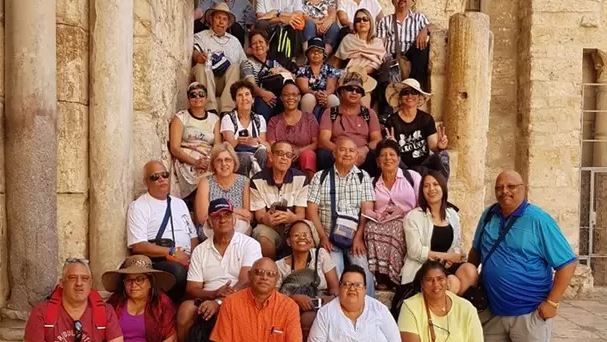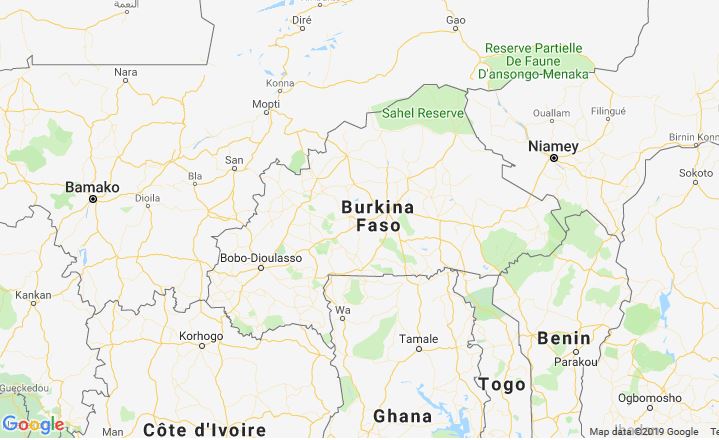World
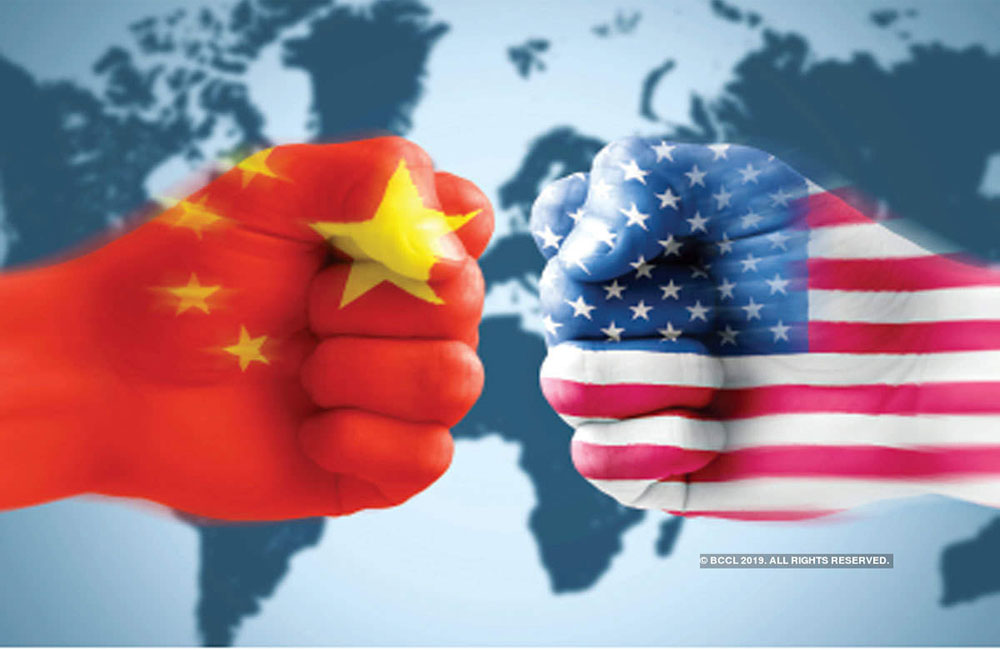
US-China trade war could derail global economy, OECD warns
The US-China trade war that has raged for the past year could cause a disastrous $US600 billion blow to the global economy.
That’s the grim assessment of the Organisation for Economic Co-operation and Development (OECD), which warned a further escalation of the crisis could impact a world economy already weakened by sluggish growth and uncertainty.
In a biannual report released yesterday, the renowned think tank predicted global gross domestic product would fall by up to 0.7 per cent by 2021, with uncertainty hitting advanced economies the hardest.
It expects the world’s GDP to slow to 3.2 per cent in 2019 compared with 3.5 per cent last year and 3.8 per cent in 2017.
“Trade tensions have disrupted growth. With uncertainty high and confidence low, investment has suffered, and the manufacturing sector has taken a hit,” OECD chief economist Laurence Boone said.
 Presidents Xi Jinping and Donald Trump have been locked in a trade war for months now. Pictures: Fabrice Coffrini, Mandel Ngan/AFP PhotosSource:AFP
Presidents Xi Jinping and Donald Trump have been locked in a trade war for months now. Pictures: Fabrice Coffrini, Mandel Ngan/AFP PhotosSource:AFP
Bloomberg Economics has painted a similarly pessimistic picture, agreeing an “all-out trade war” would lower the global GDP by 0.6 per cent or “close to $600 billion” relative to a “no trade war scenario”.
And if the tariffs imposed by both the US and China earlier this month remain in place for the next two years, Bloomberg Economics predicts global GDP could be 0.3 per cent lower by mid-2021.
But according to Chris Richardson, director of Deloitte Access Economics, the news isn’t all bad — especially for Australia.
“The basic thing to remember about trade wars is the two Ds — they are dumb, but they’re not dire,” he said.
“To be clear, there are beautiful win-win gains to be had from trade … including lifting a billion people out of poverty over the last decade and a bit.
“But now we are amid a lot of stupidity — it’s that classic push and shove in the playground stuff.”
Mr Richardson said at the moment, the US-China trade war had not yet notably hurt the global economy, although global trade had started to shrink.
But he said Australia actually stood to benefit from the situation.
“Remember, for Australia, there is this weird side effect which is that, as China slows, they pump stimulus which leads to extra construction and extra demand for things like steel,” he said.
“So, if anything, global trade wars and a slowdown in the global economy is actually good news for Australia because the world gives us a pay rise off the back of it.”
He said Australia stood to “indirectly benefit” from Chinese stimulus, with Australian farmers and the mining sector (coal and iron ore) the main winners, and while the political blowback from the trade wars could negatively affect Australia, the economic repercussions were largely positive.
However, Mr Richardson said the situation could get worse because “egos are involved” — although he said there was a risk of “overstating” just how bad it could get.
“There does remain the chance that if egos are kept under control, the damage to the world economy could still be smaller than people fear — it is dumb but it’s not dire, and there’s a chance of an outcome which is ultimately good for the world,” he said, adding the situation could encourage China to open its economy further.
TRADE WAR
For months now, US President Donald Trump and his Chinese counterpart Xi Jinping have been locked in an alarming trade war.
Earlier this month, it stepped up a notch after Mr Trump increased tariffs from 10 per cent to 25 per cent on $US200 billion worth of Chinese goods.
China then retaliated by placing tariffs on $US60 billion of US imports.
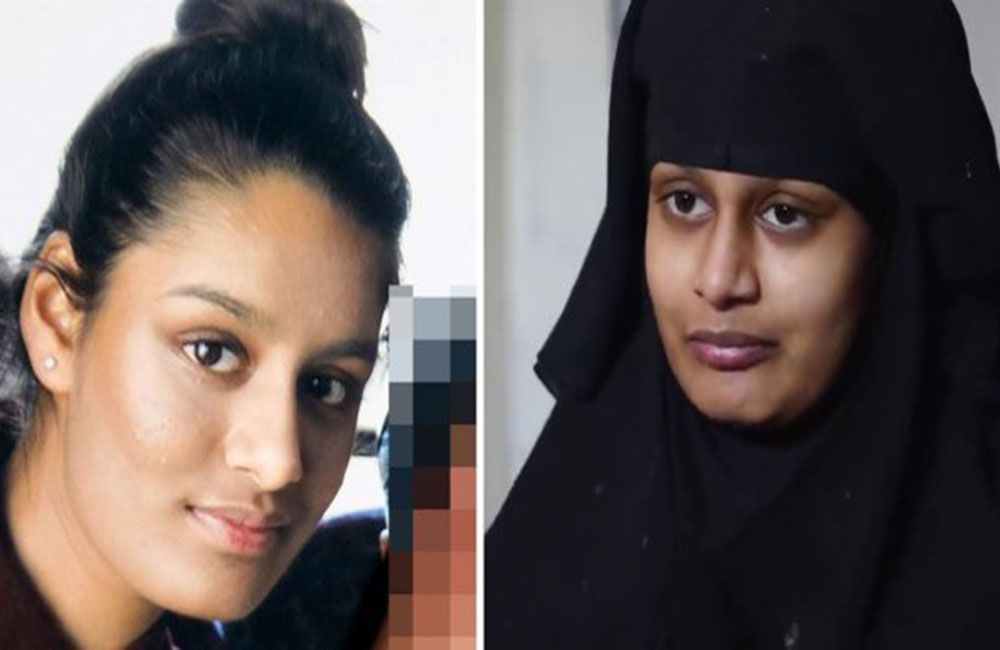
ISIS bride Shamima Begum ‘could be hanged’ if she is sent to Bangladesh
Runaway Islamic State bride Shamima Begum could face the death penalty if she is sent to Bangladesh, the country’s foreign minister has said. The teenager would face death by hanging for her involvement in terrorism, according to Abdul Momen.
Bangladesh has said it wants nothing to do with Shamima who cannot return to the UK after Home Secretary Sajid Javid stripped her of her British nationality. She is currently in a refugee camp in Syria after the collapse of the caliphate earlier this year.
The 19-year-old has said she was ‘brainwashed’ by extremists and ran away to join the death cult as a schoolgirl. She fled her home in east London in 2015 with two friends and quickly married Dutch jihadi Yago Riedijk. The couple’s three children all died.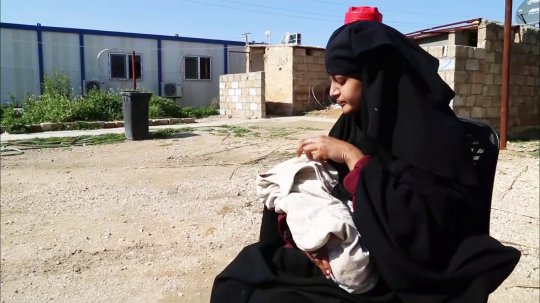 All three of Shamima Begum’s children have died while she lived in Syria (Picture: ITV)
All three of Shamima Begum’s children have died while she lived in Syria (Picture: ITV)
Under international law it is illegal to revoke someone’s citizenship if it leaves them stateless. It was thought Begum had a claim to Bangladeshi citizenship through her family, but Bangladeshi officials have denied this.
Speaking to ITV News, Momen said: ‘We have nothing to do with Shamima Begum. She is not a Bangladeshi citizen. ‘She never applied for Bangladeshi citizenship. She was born in England and her mother is British. ‘If anyone is found to be involved with terrorism, we have a simple rule: there will be capital punishment. And nothing else. ‘She would be put in prison and immediately the rule is she should be hanged.’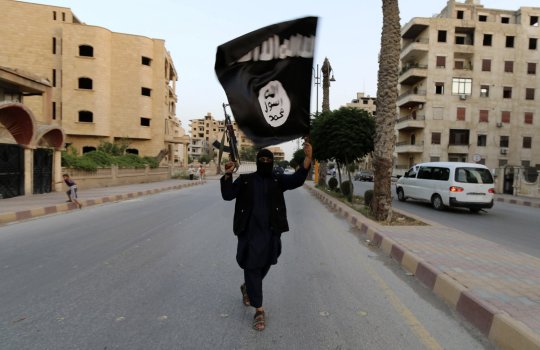 Shamima fled her east London home to join the death cult and its self-declared caliphate in Iraq and Syria (Picture: Reuters)
Shamima fled her east London home to join the death cult and its self-declared caliphate in Iraq and Syria (Picture: Reuters)
The issue of Shamima’s citizenship emerged after she declared she wanted to return to the UK. She claimed to have been brainwashed by Isis although reports have emerged that she was a member of the feared ‘morality police’
Spy chiefs allegedly believe she was witnessed sewing vests onto suicide bombers so devices couldn’t be removed without detonation. Shamima resurfaced in February this year heavily pregnant at the al-Hawl refugee camp. She gave birth to son Jarrah but he died in March aged just three weeks old.
The UK government faced criticism in the wake of the child’s death, who was a British citizen regardless of his mother’s status. But Mr Javid defended his decision to remove Shamima’s citizenship and said the Government could not assist British nationals in Syria as there is no consular presence there.
Around 900 male and female extremists went from the UK to fight for Isis. Of those, around 200 are believed to have been killed while another 360 have already returned home. Anti-terror police say as many as 200 jihadists who are alive would pose a significant threat to security if they were ever to return.
The UK Government said it would not comment on the individual case of Shamima. But it added that decisions to deprive individuals of their citizenship are based on ‘all available evidence’ and are ‘not taken lightly’.
(Metro-UK)
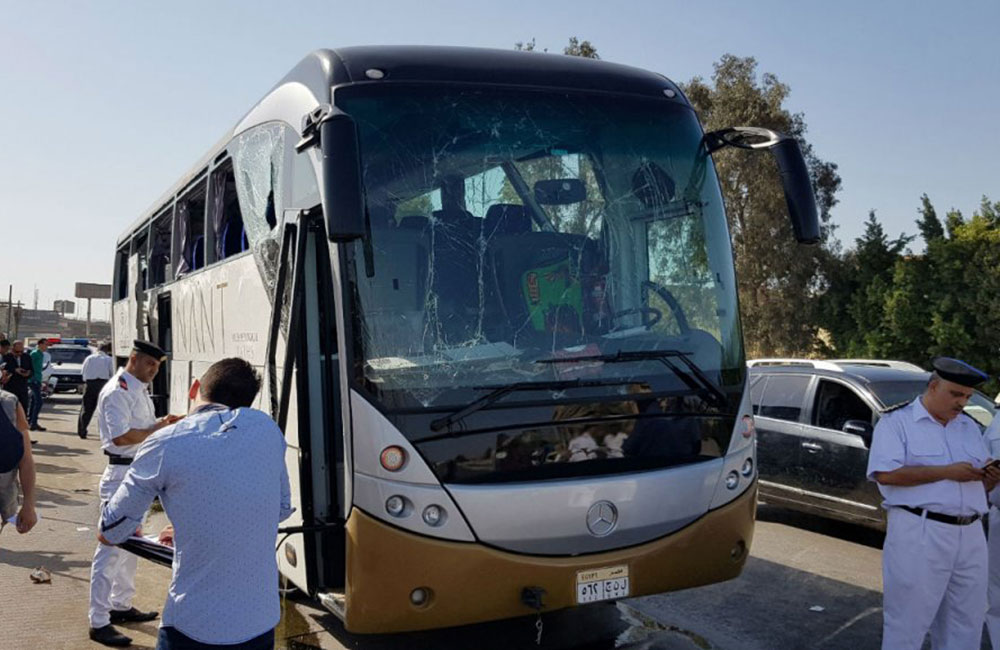
Bomb blast targets tourist bus near Egypt's pyramids
At least 17 people were injured on Sunday in a blast targeting a tourist bus near the new Egyptian museum close to the Giza Pyramids, Egyptian officials said.
The roadside bomb went off as the bus was being driven in Giza, also causing injuries to Egyptians in a nearby car, medical and security sources said. There were no deaths reported.
"A device exploded and smashed the windows of a bus carrying 25 people from South Africa and a private car carrying four Egyptians," the security source said.
Video footage captured by AFP showed the bus and car with broken windows on the side of the road.
According to the security source, the wounded were being treated for scratches caused by the broken glass.
A group picture of the tour group from Durban that was onboard the bus.
Ndivhuwo Mabaya, spokesman for South Africa's department of international relations, told AFP that "there might be South Africans involved" but declined to give any figures.
Sunday's incident comes after three Vietnamese holidaymakers and their Egyptian guide were killed when a roadside bomb hit their bus as it travelled near the Giza pyramids outside Cairo in December.
It also comes just little more than a month before the African Cup of Nations hosted by Egypt is to kick off.
Egypt has been battling an insurgency that surged especially in the turbulent North Sinai region following the 2013 military ouster of Islamist president Mohamed Morsi, who was replaced by former army general Abdel Fattah al-Sisi.
In February 2018, the army launched a nationwide operation against militants, focusing mainly on the North Sinai region.
Some 650 militants and around 45 soldiers have been killed since the start of the offensive, according to separate statements by the armed forces.
Since first being elected in 2014, Sisi has presented himself as a bulwark against terrorism, promising stability and increased security.
Recently, the country's vital tourism industry has started to slowly rebound after suffering strong blows due to deadly attacks targeting tourists following the turmoil of the 2011 uprising that toppled longtime ruler Hosni Mubarak.
Figures by the official statistics agency showed that tourist arrivals reached 8.3 million in 2017, compared with 5.3 million the previous year.
Authorities have gone at great lengths to lure tourists back, touting a series of archaeological finds and a new museum next to the pyramids, as well as enhanced security at airports and around ancient sites.
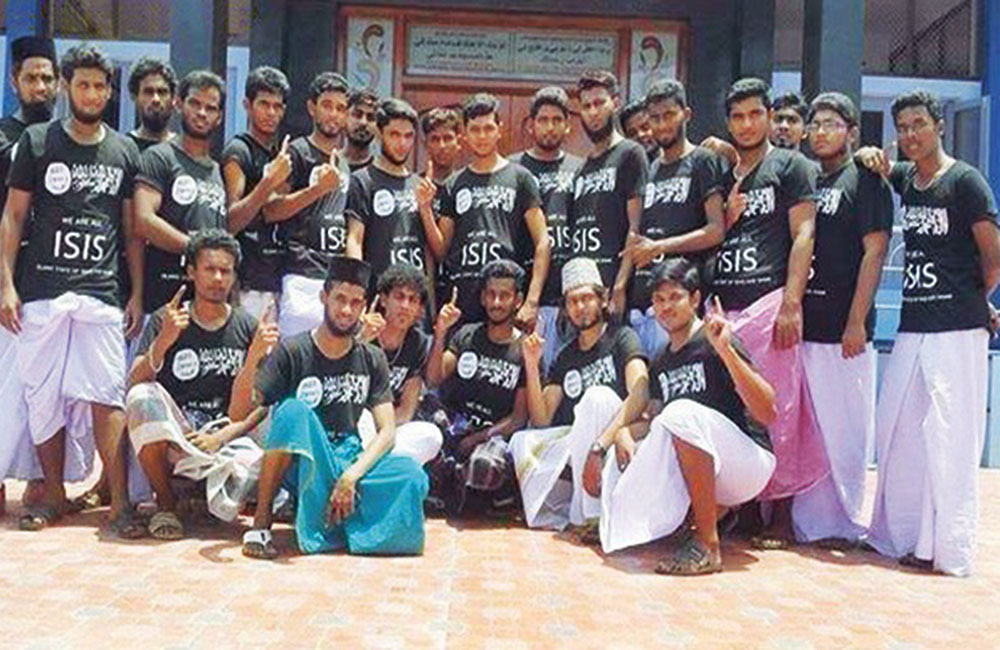
India’s internal jihadist threat is rapidly growing
As India seeks to address the terrorism challenge in Jammu and Kashmir, jihadist forces are quietly gaining ground in far-flung states, especially West Bengal, Kerala and Tamil Nadu. The situation in Assam is also fraught with danger.
India can ignore this spreading threat at its own peril.
The ISIS, for example, has reportedly named a new ‘Bengal emir’. The Sri Lanka bombings, meanwhile, have helped highlight the growing cross-strait role of Islamist forces in Tamil Nadu and Kerala. Such forces are affiliated with larger extremist networks or provide succour to radical groups elsewhere.
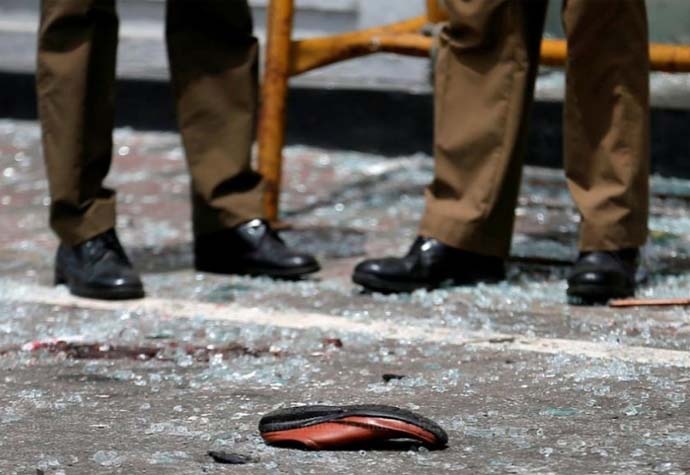
Terrible Sunday: Links have been found between Islamist forces in Tamil Nadu and the horrific bombings in Sri Lanka. (Source: Reuters)
The main group blamed for the Sri Lanka bombings — the National Thowheed Jamaath (NTJ) — is an ideological offspring of the rapidly growing Tamil Nadu Thowheed Jamaath (TNTJ). The Saudi-funded TNTJ, wedded to fanatical Wahhabism, is working to snuff out pluralistic strands of Islam. Such Arabisation of Islam is increasingly apparent in Muslim communities extending from Bangladesh and West Bengal to Kerala, Tamil Nadu and Sri Lanka’s Eastern Province.
More broadly, the collapse of the ISIS caliphate in Syria and Iraq has only intensified the terrorism challenge. Battle-hardened terrorist fighters returning home from Syria and Iraq have become a major counterterrorism concern in South and Southeast Asia, given their operational training, skills and experience to stage savage attacks.
The presence of such returnees in Sri Lanka explains how an obscure local group carried out near-simultaneous strikes on three iconic churches and three luxury hotels, with the bombers detonating military-grade high explosives through suicide vests. Similar returnees are present in a number of other Asian countries.
The Sri Lanka attacks indeed underscore the potential of such returnees to wage terror campaigns in the same way that the activities of the Afghan war veterans, like Osama bin Laden and other al-Qaeda leaders, came to haunt the security of Asia, the Middle East and the West.
The jihadist threat, however, is posed not only by the returnees from Syria and Iraq. Such a threat also arises from those elements who never left their countries but see violence as a sanctified tool of religion and a path to redemption. Such local forces extolling terror are gaining clout.
The TNTJ in India, for example, helped to establish the Sri Lanka Thowheed Jamaath, from which the bomber outfit NTJ emerged as a splinter. In the current national elections in India, the Dravida Munnetra Kazhagam (DMK) and some other local political parties have openly courted the TNTJ.
Just as Bangladesh blamed Pakistan’s Inter-Services Intelligence (ISI) for instigating the 2016 brutal Dhaka café attack through a Bangladeshi outfit, Sri Lanka’s NTJ has ties with the ISI’s front organisation, Lashkar-e-Taiba (LeT).
The ISI and the LeT, through their joint Sri Lanka operations, have sought to establish cross-strait contacts with TNTJ activists in India.
NTJ leader Zahran Hashim, who reportedly died in one of the Easter Sunday suicide bombings, was inspired by fugitive Indian Islamist preacher Zakir Naik’s jihad-extolling sermons. Hashim also reportedly received funds from jihadists in south India.
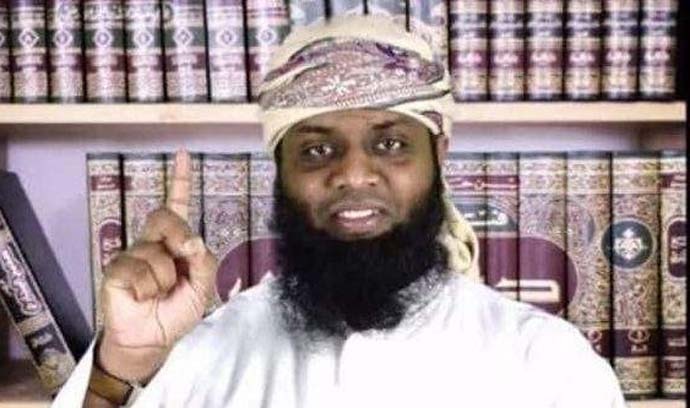
Islamic extremist Zahran Hashim is believed to have been the mastermind of the Sri Lanka bombings on Easter Sunday. (Source: Facebook)
India, despite providing detailed intelligence warnings to Sri Lanka about the bombing plot, has been slow in developing a credible strategy to counter the growing jihadist influence within its own borders. For example, Prime Minister Narendra Modi’s government initiated action against Zakir Naik only after the Dhaka café attack prompted Bangladesh to demand action against him. The prime minister, however, is right in saying that Naik enjoyed the patronage of the predecessor Manmohan Singh-led government — which, according to Modi, once invited Naik to address police personnel on the issue of terrorism!
Today, Naik is ensconced in Malaysia, which has granted him permanent residency. Yet, India has imposed no costs on Malaysia, such as cutting palm-oil imports from there, for sheltering a leading fugitive from Indian law.
Like al-Qaeda at one time, ISIS seeks to show its continuing relevance by claiming responsibility for terror strikes that have occurred in places far from the areas where it has had presence. Rather than ISIS being directly involved in the Sri Lanka bombings, it is more likely that the ideology ISIS subscribes to — Wahhabi fanaticism — inspired those attacks.
It takes months, not weeks, to motivate, train and equip a suicide bomber. So, the speculative comment that the Sri Lanka bombings were a reprisal to the March 15 Christchurch, New Zealand massacre made little sense, especially as it came from the Sri Lankan junior defence minister.
Fortunately, the Sri Lankan prime minister later walked back that speculation.
Detaining a terrorist attacker’s family members for questioning has become a de facto international anti-terrorist practice. Sri Lanka quickly rounded up the bombers’ family members, including parents, for questioning once the suicide killers were identified. The US Federal Bureau of Investigation also detains a terrorist attacker’s family members for questioning — but not India.
For example, the Pulwama bomber’s family members not only remained free but also gave media interviews rationalising the February 14 suicide attack.
Publicity is the oxygen of terrorism.
Terrorists rely on media publicity to provoke fear and demonstrate power.
Unfortunately, in the absence of US-style media peer guidelines in India on terrorism-related coverage, Indian journalists supplied the oxygen of publicity by reporting allegations of the Pulwama bomber’s family members — including their claim that he was once roughed up by army or paramilitary soldiers. What the family members did not reveal was that the bomber had previously been detained on four separate occasions by J&K police, on suspicion of providing logistical assistance to the LeT, but that each time he was freed without the investigators getting to the bottom of his activities.
Make no mistake: Islamist terror is closely connected with the spread of Wahhabism, the obscurantist and intolerant version of Islam bankrolled by Saudi Arabia and other oil sheikhdoms. Wahhabi fanaticism is terrorism’s ideological mother, whose offspring include ISIS, al-Qaeda, Taliban, LeT and Boko Haram.
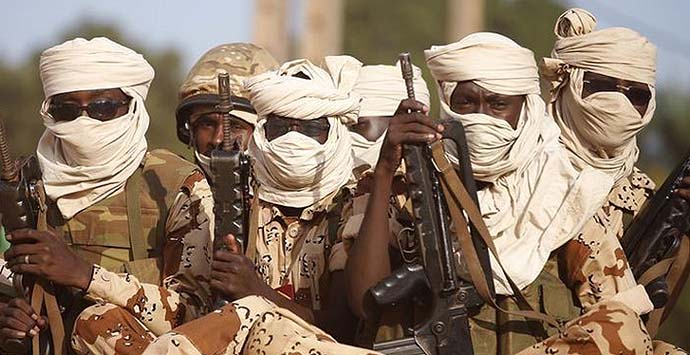 Wahhabi fanaticism is terrorism's ideological mother — its offspring include ISIS, LeT and Boko Haram. (Source: Reuters)
Wahhabi fanaticism is terrorism's ideological mother — its offspring include ISIS, LeT and Boko Haram. (Source: Reuters)
The jihadist threat in Tamil Nadu, Kerala, West Bengal and Assam — like in Sri Lanka — is linked with the growing spread of Wahhabism. If left unaddressed, this scourge of Islamist extremism could become a major internal security crisis in India.
India’s counterterrorism focus on Jammu and Kashmir has allowed jihadists to gain influence in other states far from J&K. India needs to wake up to this spreading threat.
It must crack down on the preachers of hatred and violence. It also must rein in the increasing inflow of Saudi and other Gulf money so as to close the wellspring that feeds terrorism — Wahhabi fanaticism.
(Brahma Chellaney)
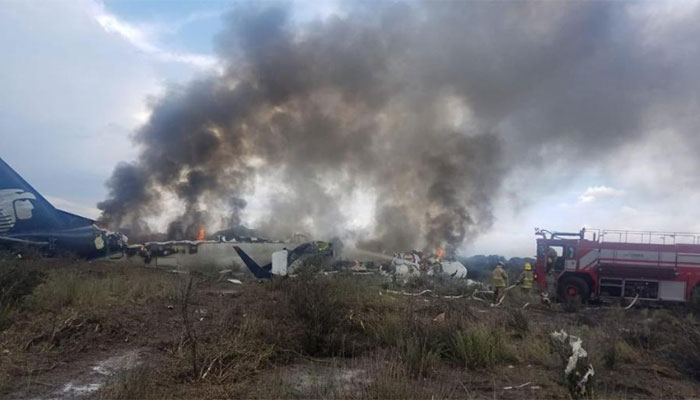
Five foreign tourists killed in plane crash in Honduras
TEGUCIGALPA: Five foreigners including the pilot died on Saturday when their private plane crashed into the sea shortly after taking off from Roatán island, a tourist destination on the Atlantic coast of Honduras, local authorities said.
Officials gave conflicting accounts of the victims’ nationalities. Armed forces spokesman Jose Domingo Meza said four of the victims were from the United States and the fifth victim’s nationality had yet to be determined.
Local emergency services initially said the victims included four Canadians and another victim of unknown nationality.
Local authorities did not immediately offer a cause for the accident.
The Piper PA-32-260 plane was headed to the tourist port city of Trujillo, about 80 kilometers (49.71 miles) from Roatan, a picturesque island frequented by tourists from the United States, Canada and Europe, authorities said.
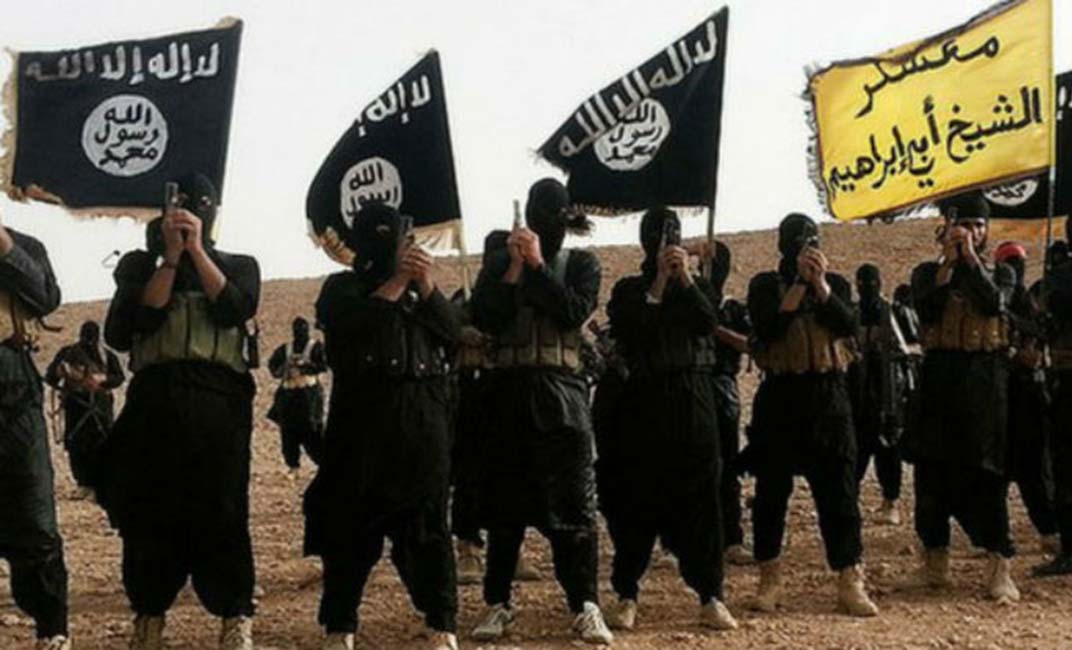
ISIS warns of terror attacks in India, Bangladesh
Days after a spate of suicide attacks on Easter Sunday in Sri Lanka that killed over 250 people, the Islamic State affiliate group has issued a direct threat to carry out attacks in India and Bangladesh. According to a report by The Times of India, the ISIS has appointed Abu Muhammed al-Bengali as a new 'emir' (chief) in Bangladesh.
“If you think you have silenced the soldiers of the Khilafa in Bengal and Hind and you are certain about that then listen we men are never to be silenced.. And are thirst for revenge is never to be faded away (sic),” the TOI report quoted the ISIS poster as saying.
The new security threat comes a day after the ISIS carried out minor explosion near a cinema hall theatre in Dhaka. The explosion didnot result in any casualties but a few policemen sustained injuries in the blast.
The militant group released the poster just a day after its media outlet published a video message of its leader Abu Bakr al-Baghdadi who claimed that the recent Easter bombings in Sri Lanka were a response to the losses faced by the terror group in its last territorial stronghold of Baghouz in Syria.In the video titled "In the Hospitality of the Emir of the Believers,
" Baghdadi was seen sitting alongside three other ISIS members whose faces are blurred, next to a rifle and ammunition belt. He praised the recent terror attacks in Sri Lanka and called it "revenge" for Baghouz — the small Syrian village where Isis made its last stand.
The increase in circulation of IS-related material in different languages have alerted agencies. The Indian intelligence is closely inspecting the developments in Bangladesh and they fear that the attacks could take place either in West Bengal or Bangladesh.
According to a development reported by the TOI, pro-IS Telegram channels had circulated a poster on 25th April in Bengali saying "Coming soon" which had logo of a group called 'al Mursalat'.
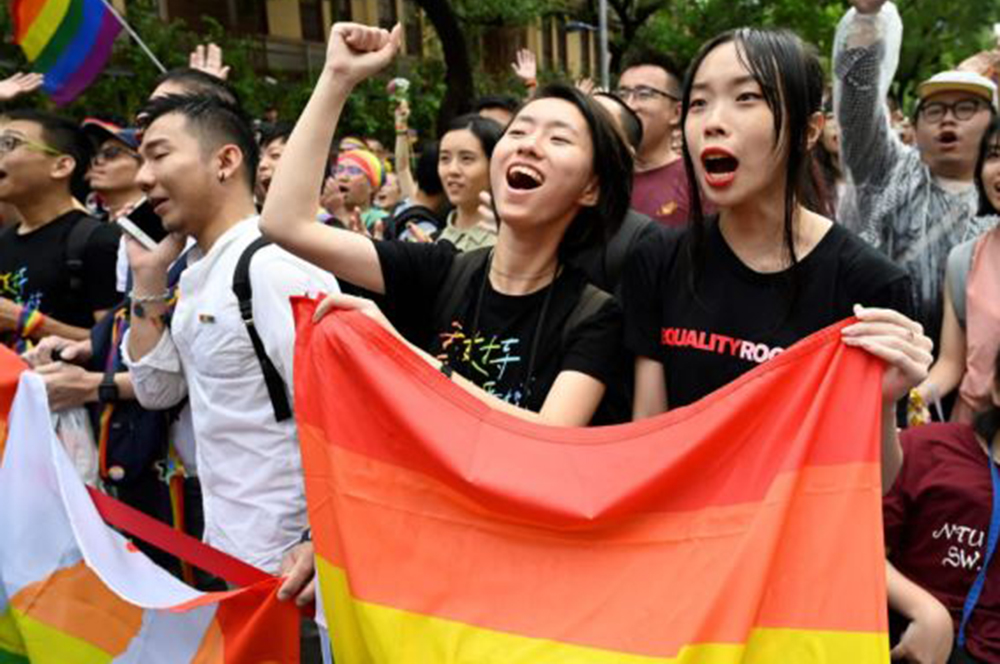
Taiwan becomes first Asian country to legalize same-sex marriage
Thousands of marriage equality advocates celebrated in the pouring rain outside Taiwan’s legislature on Friday as it easily voted to grant same-sex couples similar marriage rights as those of heterosexual couples.
The law, which allows for same-sex couples to apply for “marriage registration” as part of “exclusive permanent unions,” passed by a comfortable margin and marked a key victory for Taiwan’s LGBT community.
Taiwan’s high court ruled on May 24, 2017 that barring same-sex couples from marrying violates its constitution and gave the legislature two years to pass a corresponding law or see same-sex marriage become legalized automatically. The process frequently stalled amid conservative opposition. In November 2018, Taiwan voted in a public referendum to restrict same-sex couples from full marriage rights.
Taiwan’s ruling Democratic Progressive Party (DPP) responded by submitting legislation designed to comply with both the court ruling and the referendum result. Two competing bills which would be less favorable to the gay community were submitted, but they failed to gain traction.
The law could give the DPP and President Tsai Ing-wen a boost ahead of January 2020s presidential election. Gay rights advocates have long criticized the ruling party for failing to pass legislation sooner, but these concerns were largely absent amid the mood of optimism at Friday’s rally.
Chi Chia-wei, a gay rights activist for over 30 years, said he was “very, very happy” to see Taiwan legalize same-sex marriage, calling the process “a strong demonstration of our democratic spirit.”
A man holds rose with a gay pride ribbon tied to it as he waits outside Taiwan's parliament where voting is taking place on legalising same-sex marriage on May 17, 2019 in Taipei, Taiwan. (Carl Court/Getty Images)
The law ensured that Taiwan, a self-ruled democratic nation, would stand as an example for Asia’s growing LGBT community. Thailand has proposed a law to recognize civil partnerships, but same-sex unions remain illegal elsewhere in Asia.
Jay Lin, CEO of Portico Media and a gay father of two children, called the law a “beacon of hope” for Asia’s gay community. “I’m very glad that I’m living in Taiwan and I’m a beneficiary of these new laws,” he said.
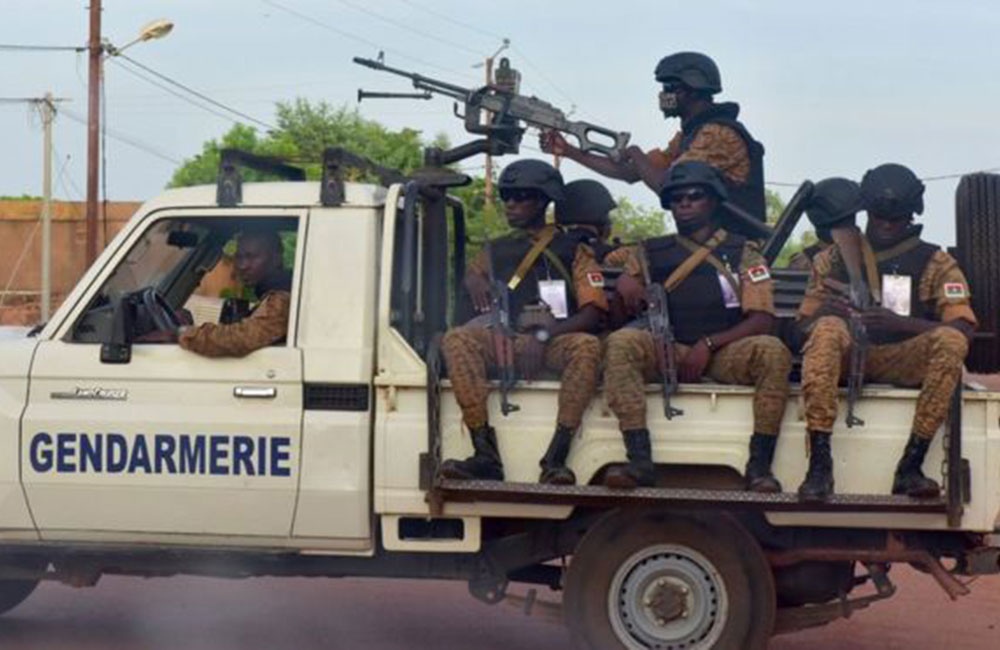
Burkina Faso: Christians killed in attack on church
Gunmen have opened fire on a church in northern Burkina Faso, killing at least six people, officials say.
The attackers reportedly arrived on seven motorbikes at the end of Sunday's service and killed the pastor, two of his sons and three other worshippers.
It is the first attack on a church since jihadist violence erupted in the West African country in 2016.
Fighters affiliated to al-Qaeda and the Islamic State group as well as the local Ansarul Islam have been active.
Sunday's attack on the Protestant church happened in the small town of Silgadji near Djibo, the capital of Soum province, at around 12:00 local time (12:00 GMT).
The number of attackers involved or their possible affiliations is not clear.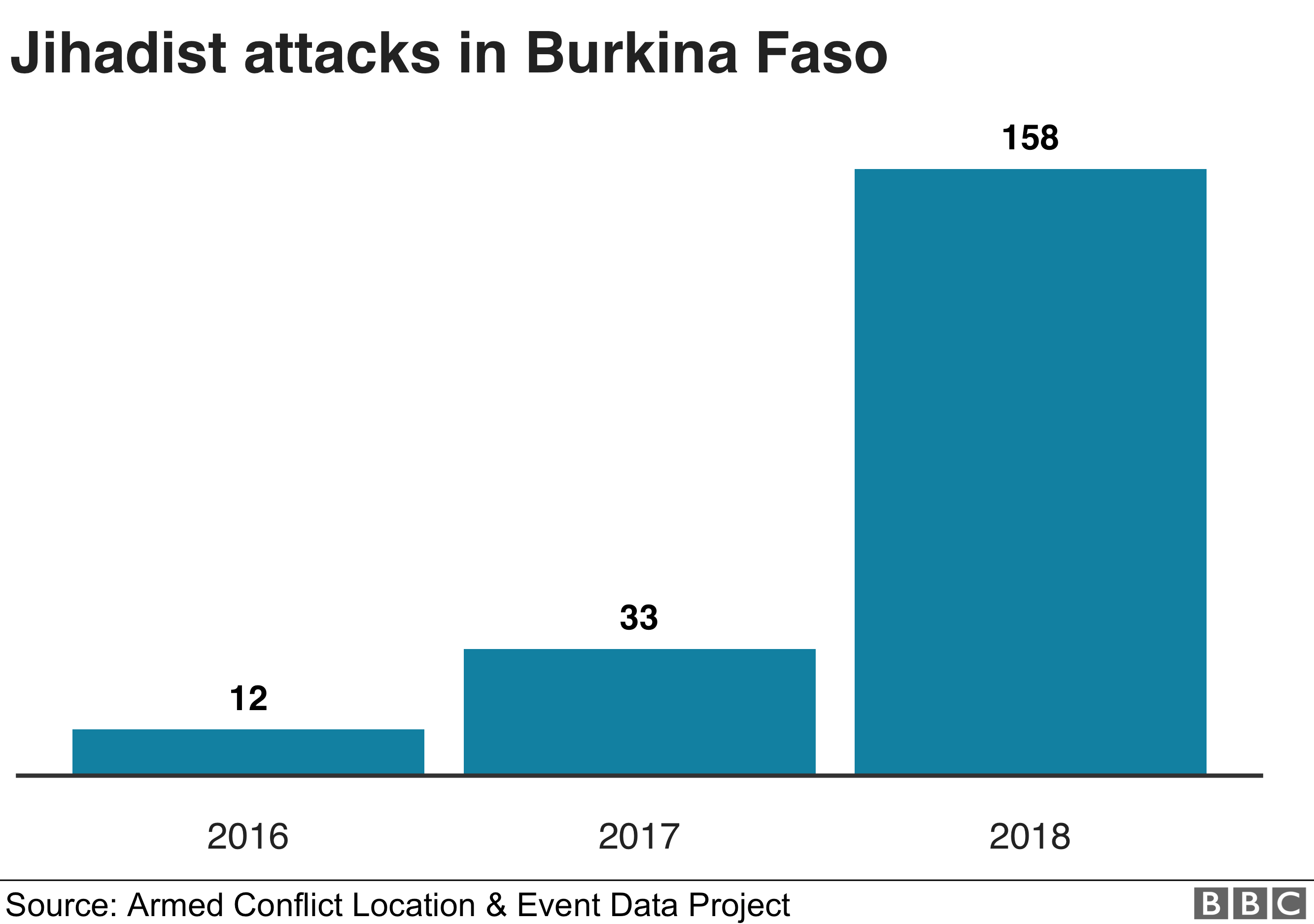
Islamist groups have been blamed for a number of attacks in the country in recent years, BBC Afrique's Simon Gongo reports.
On Friday, five teachers were killed in the east of the country in another incident attributed to jihadists, our correspondent adds.
Meanwhile, the fate of a Catholic priest kidnapped a month ago remains unclear.
(BBC)

World leaders, tech bosses work on stemming online violence
PARIS (AP) — Several world leaders and tech bosses are meeting in Paris to find ways to stop acts of violent extremism from being shown online.
They're working all day Wednesday on the "Christchurch Appeal," named after the New Zealand city where 51 people were killed in a March attack on mosques. The attacker streamed the killing live on Facebook.
New Zealand Prime Minister Jacinda Ardern called the meeting a significant "starting point" for changes in government and tech industry policy. Ardern will run the Christchurch Call event together with French President Emmanuel Macron – who is already “leading” work on this matter.
Officials at Facebook said they support the idea of the appeal, but that details need to be worked out that are acceptable for all parties.
Twitter, Google, Microsoft and several other companies are also taking part, along with the leaders of Britain, France, Canada, Ireland, Senegal, Indonesia, Jordan and the European Union.
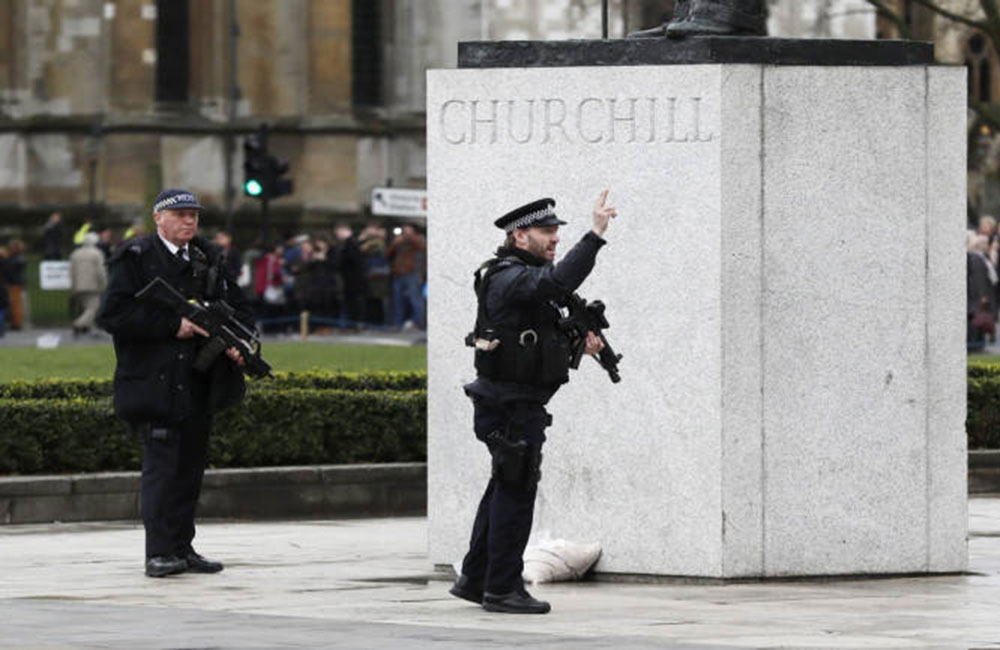
UK hunt for ISIS 'sleeper cells' after SL blasts: Report
Britain's security forces are on the hunt for so-called "crocodile cells or sleeper cells" of Islamic State (ISIS) operatives plotting terrorist attacks in the UK and Europe, according to a UK media report.
The country's police chiefs are urging churches and mosques in Britain to have counter-terrorism training because of fears of further attacks in the wake of the Sri Lanka terrorist strikes, which claimed hundreds of lives over Easter.
"Now that ISIS has been defeated in Syria and Iraq, it will become more violent outside (this area). As its core weakens, its peripheries will become more dangerous," Charlie Winter, of the International Centre for the Study of Radicalisation at King's College London, told 'The Sunday Times'.
"It's a grim outlook, but we are likely to see more attempts at attacks, more regularly, for the foreseeable future. Sri Lanka was not a one-off. If anything, it was a test run," he said.
The UK's intelligence services continue to investigate links between one of the Sri Lankan suicide bombers, Abdul Lathief Jameel Mohamed, and the UK-based extremists since it emerged he had studied in Britain.
Mohamed is considered by Western intelligence agencies to be one of the plot's ringleaders. He is believed to have secretly travelled to Syria to prepare for the attack.
Once there, he was reportedly "mentored" by a group of notorious British ISIS fighters and recruiters, including the killer known as Jihadi John.
"Mohamed appears to have been sent back to Sri Lanka after receiving his terrorist training under an ISIS strategy utilising 'crocodile cells' or sleepers waiting to pounce," The Sunday Times reported.
"We've seen intelligence which connects him (Mohamed) to a number of British terrorists who were in Syria, as well as to Jihadi John and Junaid Hussain, around the time that ISIS set up its caliphate," an intelligence source told the newspaper.
"The British jihadists seemed to be mentoring him through communication online and also when he travelled to Syria," the source added.
Mohamed is likely to have spent only a matter of months in the Syrian war zone, and it remains unclear when he returned to Sri Lanka to become part of an ISIS sleeper cell.
Another theory is that Mohamed may have fallen under the influence of terror outfit Hizb-ut-Tahrir (HuT) while living in London and studying at Kingston University in the mid-2000s.
The group, which calls for the foundation of an Islamic caliphate, had a strong presence on the Kingston campus at the time Lathief was in the UK to study aeronautical engineering, according to 'The Sunday Telegraph'.
However, a spokesperson for HuT Britain said the group had no record of Lathief Mohamed being a member.
"To be absolutely clear, we abhor the senseless killing of citizens in any country by any person, group or military. The Islamic Shari'ah does not give justification for such acts as in Sri Lanka last week," the spokesperson said.
HuT is banned in more than a dozen countries, but not the UK. Former British Prime Ministers Tony Blair and David Cameron both tried unsuccessfully to ban it.
(PTI)
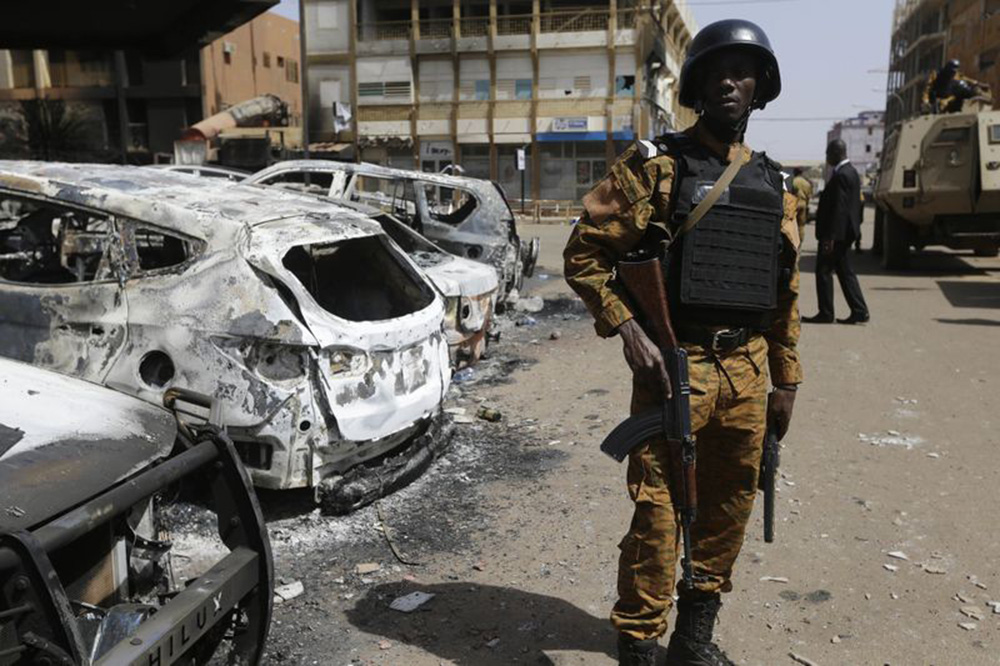
Attack on Catholic church in Burkina Faso leaves 6 dead
Six people were killed Sunday during mass at a Catholic church in central Burkina Faso, according to state media.
Gunmen on motorcycles stormed the church in Dablo on Sunday morning, killing six men, including the priest, before setting fire to the church and buildings in the area, the Burkina Information Agency reported.
In February, CNN reported that the US was considering sending additional military advisers as well as intelligence and surveillance assets such as drones to Burkina Faso to help combat a growing terrorist threat.
The landlocked country in northwest Africa has been beset by extremist violence in recent months as Islamist terror groups expand their reach.
The number of violent incidents in the country linked to the local affiliates of al Qaeda and ISIS rose from 24 in 2017 to 136 in 2018, according to a report by the Africa Center for Strategic Studies.
The Trump administration last year announced plans to cut the number of US troops in Africa by around 10%. One defense official told CNN that the planned reductions would eventually lower the number of US counterterrorism troops and their enablers who support operations by approximately 20%.
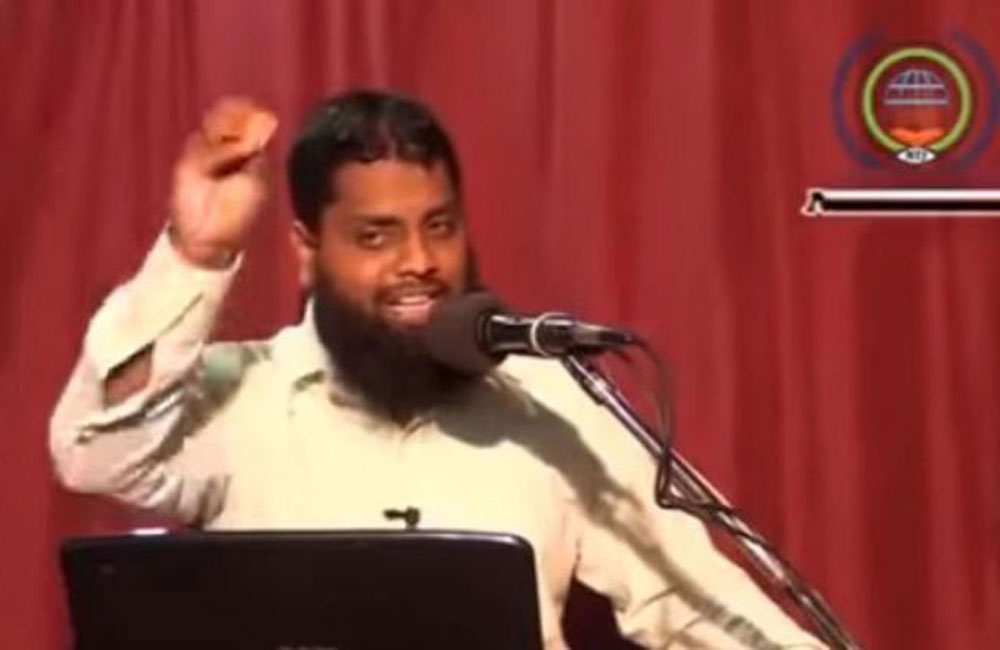
Sri Lanka bombing suspect had links with IS module in India
NEW DELHI — Zahran Hashim, a radical Tamil-speaking cleric who is believed to have masterminded the Sri Lanka blasts which left over 350 people dead and around 500 injured on Easter Sunday, was in "direct and regular" touch with some Islamic State sympathizers in Southern India for over three years and was instrumental in forming a "pro-IS module,” sources said.
An official of a counter-terror agency told IANS that Hashim had developed relations with Islamic State sympathizers in Kerala and Tamil Nadu through illegal trade and social media sites like Youtube and Facebook.
The official said some of the Islamic State sympathizers are in National Investigation Agency custody and many of them have been named in its chargesheet filed on February 26. Most of them have visited Sri Lanka before having allegiance to Islamic State. They belong to Kerala and Tamil Nadu.
Arrested IS sympathizers include Mohammed Ashiq, Ismail, Samsudeen, Jafar Sadik Ali and Shahul Hameed. Some of them were in touch with Hashim while others were in contact with men in Hashim's network of operatives trying to establish a pro-IS module in Southern India. All of them are in judicial custody on charges of hatching conspiracy to target Hindu leaders at Coimbatore with intention to furthering the objectives of the Islamic State. They belong to different areas in Tamil Nadu.
Hashim, another intelligence official said, was also instrumental in radicalizing youths in Sri Lanka in the garb of conducting Quran classes and was known there as a "Molvi" (cleric).
The central intelligence agencies in India, however, are not sure if Hashim died in the Sri Lankan attack before which he was a virtual unknown in the island state. It is believed that he went to an Islamic college in Sri Lanka. However, he was not known to be popular in his community.
The Sri Lankan government has pointed a finger at Hashim indirectly as the prime suspect in the Easter Sunday blasts and accused him of leading a little-known Islamist group, the National Thowheeth Jamaath (NTJ), affiliated to the Islamic State. Sri Lankan intelligence officials and Prime Minister Ranil Wickremesinghe believe that Hashim may have masterminded the attacks.
The Islamic State April 23 claimed responsibility for the attacks without providing evidence of its involvement. A video released by the terrorist outfit shows a person, purported to be Hashim, swearing allegiance to Islamic State chief Abu Bakr al Baghdadi.
Another official also confirmed that an intelligence input regarding the Easter Sunday attack was shared with Sri Lankan intelligence officials late on Saturday and that it took the Indian officials engaged almost whole day considering its importance.
According to the official, the warning was specific about threat to some churches, hotels and the Indian High Commission in Colombo.
Three churches and four hotels were hit by suicide bombers, sending shock-waves through the island nation that has been relatively peaceful since the civil war ended a decade ago.
Another similar intelligence input, the official said, was shared with Sri Lankan intelligence agents on April 4 and April 20.
So far, over 50 people have been arrested in Sri Lanka in connection with the attack, said the official.
Sri Lankan President Maithripala Sirisena, who was out of the country during the attacks, has said he was not informed about this advisory and asked for the resignation of the country's defense secretary and police chief.
(IANS)
Page 13 of 41
